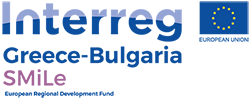Project Background

Ensuring equitable access to high-quality primary and emergency healthcare, constitutes a key challenge for the Greek-Bulgarian cross-border area.
Poverty, geographical and social exclusion are some of the most serious challenges for the health system across the Greek-Bulgarian CB area, as well as all across Europe.
According to Programme’s analysis of the current situation, the cross-border area’s population is faced with considerable health challenges, especially in remote areas and areas of concentration of special population groups. People living in poverty or being at risk of geographical and social exclusion are more likely to face health problems and there is evidence that they frequently do not receive the adequate care either in terms of quality (lack of/ limited medical staff and equipment) or time correspondence (applying especially in emergencies cases).
The primary healthcare providers in the cross-border area utilise old medical infrastructures and equipment that limit their capacity, not only in case of emergencies, but in the management of chronic diseases as well.
The territorial responsibility of the primary healthcare providers from both countries that will benefit from SMiLe project covers a total population of about 240,000 people and an area of 10,000 km2, covering territories characterised by an intense complexity of population including minorities such as Pomaks, Roma, immigrants etc.
At the same time, the levels of children and elderly populations – two groups that need most frequently emergency health care – are considerably high and, during the past four years, the humanitarian refugee crisis has put more weight on the shoulders of the primary health care system especially in the Greek side of the cross-border area.
Within this context, the central need which triggered the development of SMiLe project idea was the improvement of the overall effectiveness in covering the primary and emergency needs of the cross-border population.
The 4th Health District of Macedonia-Thrace being the unique health regional authority in charge for the provision of the primary healthcare through its primary healthcare centres in the whole area and the Aristotle University of Thessaloniki – Department of Medicine developed the SMiLe project idea in cooperation with the MHAT Hospital of Ardino, the Municipality of Harmanli and the National Emergency Aid Centre, aiming to improve in substantial and practical way the day-to-day primary health care as well as the emergencies management, focusing especially in cross-border remote and disadvantaged areas.
The SMiLE project intends to provide in a permanent and sustainable basis, upgraded primary and emergency health services with the use of modern medical equipment and the provision of qualified medical staff, restoring the feeling of security to citizens living in isolated and remote areas… bringing back the SMiLe and the hope for a better life for them and their children in the Greek-Bulgarian CB area.
Project Idea

Project Scope

Objectives
The main aim of SMiLE project is to upgrade the capacity of primary health care structures and providers in the cross-border area, through a holistic approach that will include the improvement of infrastructures, the supply of special medical equipment that will facilitate the in situ provision of improved primary health care services, as well as the introduction of innovative practices in primary health care, focusing on vulnerable population groups. The implementation of these three basic axes of the project around which all actions have been designed, aims to remove hindrances in providing health care, due to geographical, social and individual factors that can be recognised in the cross-border area.
Furthermore, contributing to the achievement of the Program’s priority specific objective, the SMiLe Project aims mainly to upgrade and equip with basic modern medical equipment 6 PHC centres in the CB area – Paranesti, Nevrokopi, Echinos, Iasmos, Stavroupoli & Soufli -, 1 regional hospital (Didimoticho) and 2 MHAT hospitals (Ardino & Harmanli), all located in remote and isolated territories of the CB area. While, the improvement of the emergency response through the upgrading of the ambulances management system in the area of Drama and Harmanli is also set as one of the main project objectives. In addition, particular attention will be paid to patients with disability, through the creation of a training centre on their particular needs which will train PHC practitioners of the CB area. Moreover, the project aims to:
- Maximise the effectiveness of the health and medical resources, providing advanced services to a greater number of beneficiaries.
- Minimise the need of patients’ evacuation in cases of emergencies, and chronic medical disorders, thanks to the improvement of the health services in the specific territories.
- Establish a feeling of security in the local population and enhance their faith and trust to the public health systems.
- Reduce, in medium term, healthcare costs as direct and better PHC will be provided, reducing the morbidity of the population.
Create a permanent system and platform for the evaluation of PHC services by the citizens, ensuring their continuous monitoring and improvement.
- General population of the border areas, who will have access to primary healthcare services through Primary Healthcare Centres and Hospitals with improved capacity and improved infrastructure
- Persons with restricted mobility (disabled, elderly, children etc.) who will benefit from improved accessibility of infrastructure and the training of medical practitioners on their particular needs
- Medical practitioners all over the cross-border area who will benefit from the training realised through the project
- Local and regional stakeholders and interested parties active in the field of primary health care and emergencies actions, through their participation in the development of a joint citizens’ oriented primary healthcare governance plan
Expected outputs

The main outputs of SMiLe project are:
- the upgrading of 6 PHC units and 3 hospitals – all located in remote and disadvantaged CB territories (Paranesti, Nevrokopi, Echinos, Stavroupoli, Iasmos, Soufli, Didimoticho, Ardino and Harmanli),
- the placement and operation of TETRA communication system for entire fleet of ambulances (including health centres) in the Regional Unit of Drama and TETRA communication system and ambulances management system for the Operational Centre,
- the creation and operation of a modern Training Centre for Primary Healthcare Practitioners, that will be located in the Department of Medicine of the Aristotle University of Thessaloniki and will provide specialised training courses to primary healthcare practitioners of the cross-border area not only during the project lifetime but also after its completion,
- a set of studies focusing on the improvement of the accessibility in selected Healthcare Units in the cross-border area, including the preparation of a toolbox for Equal Health Provision and
- the development and operation of an IT Platform for the evaluation of primary healthcare services
In full compliance the Program Output Indicators, the SMiLe Project will result to the modernising and the reequipping of 9 healthcare institutions – all located in deprived and isolated CB areas. Also, a citizens’ oriented primary healthcare evaluation IT platform will be developed, while the communication and ambulance management system in the area of Drama and Harmanli will be upgraded.
It should be noted that the expected outputs ensure the maximum sustainability of the project, intending to provide upgraded health services to a total population of about 240,000 people in the Greece-Bulgarian CB area.


